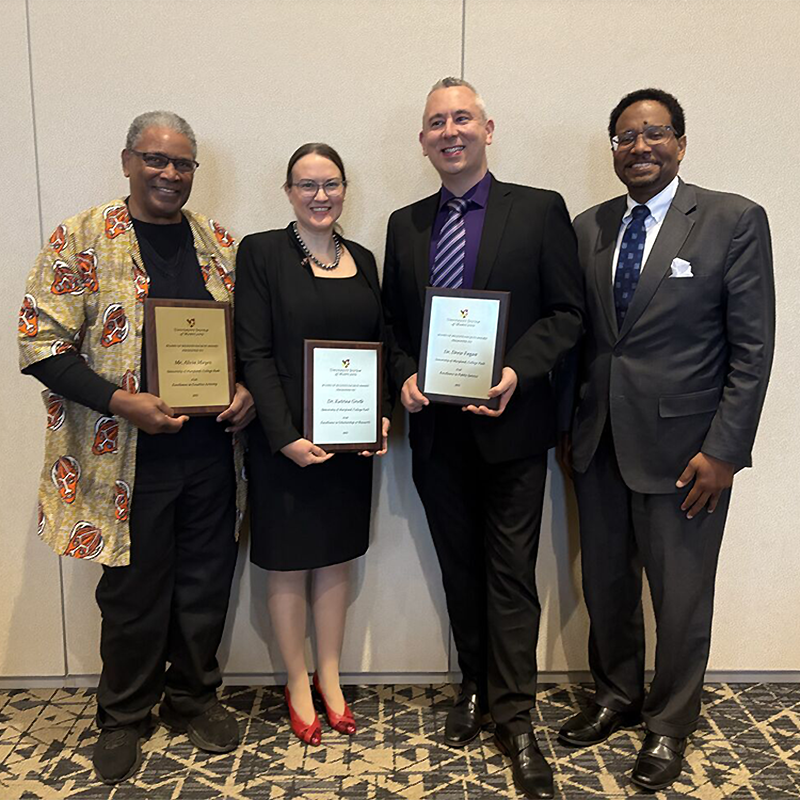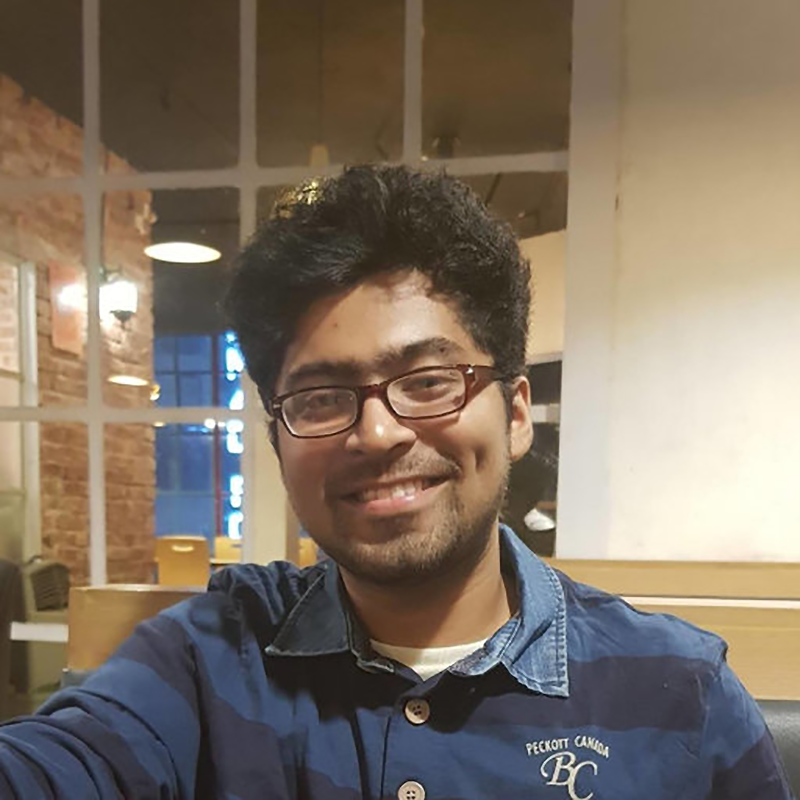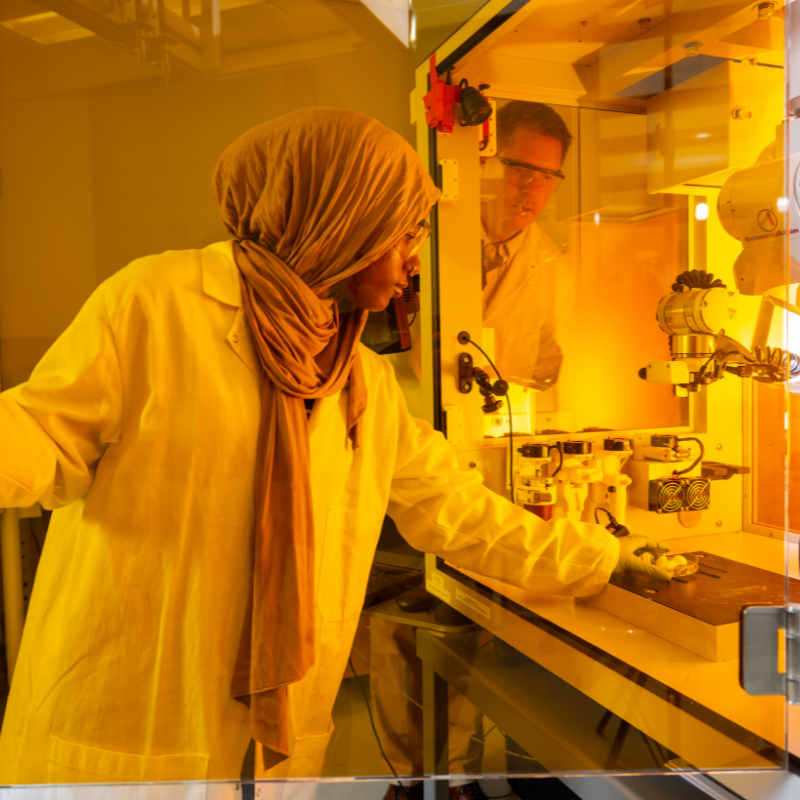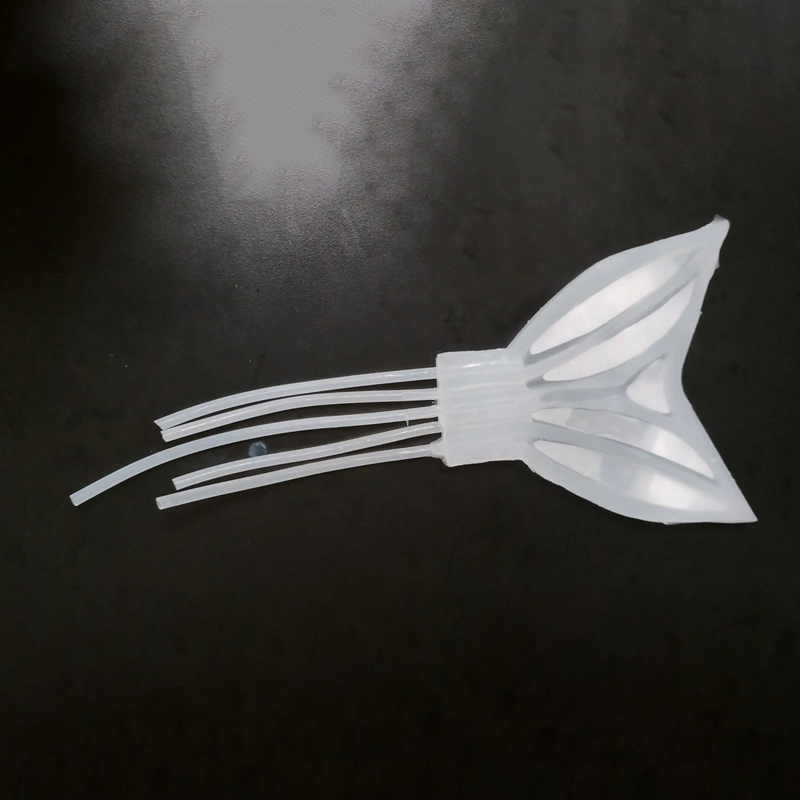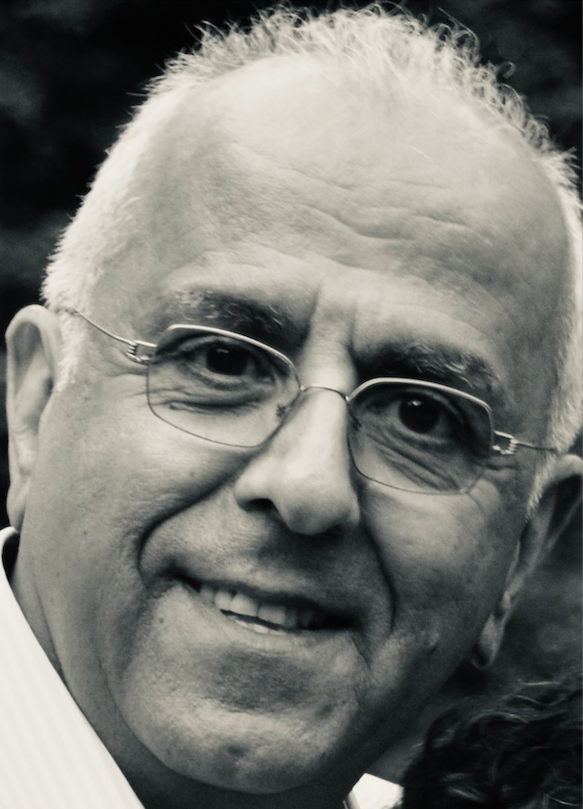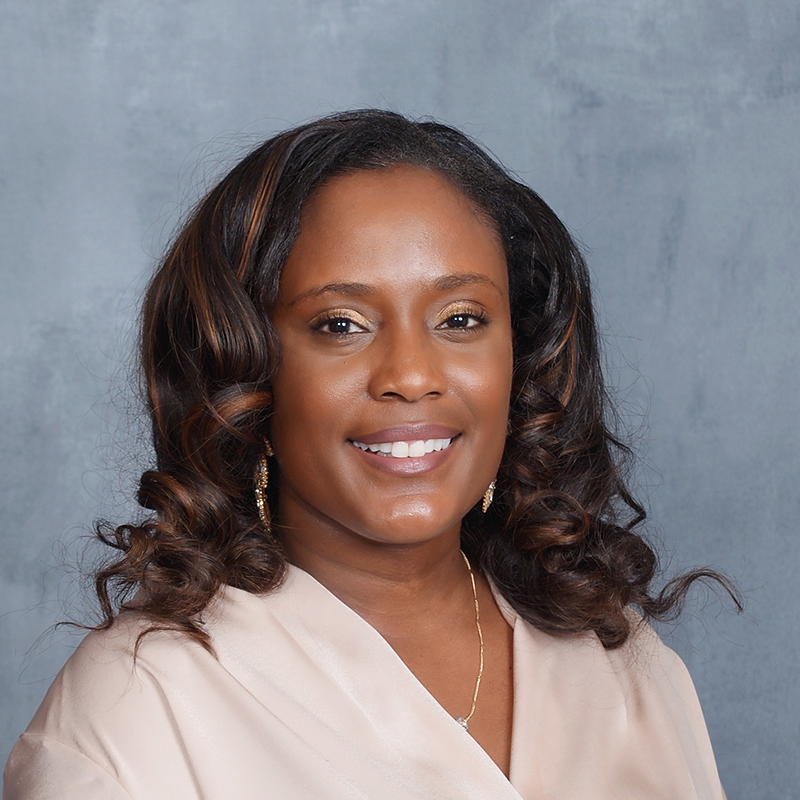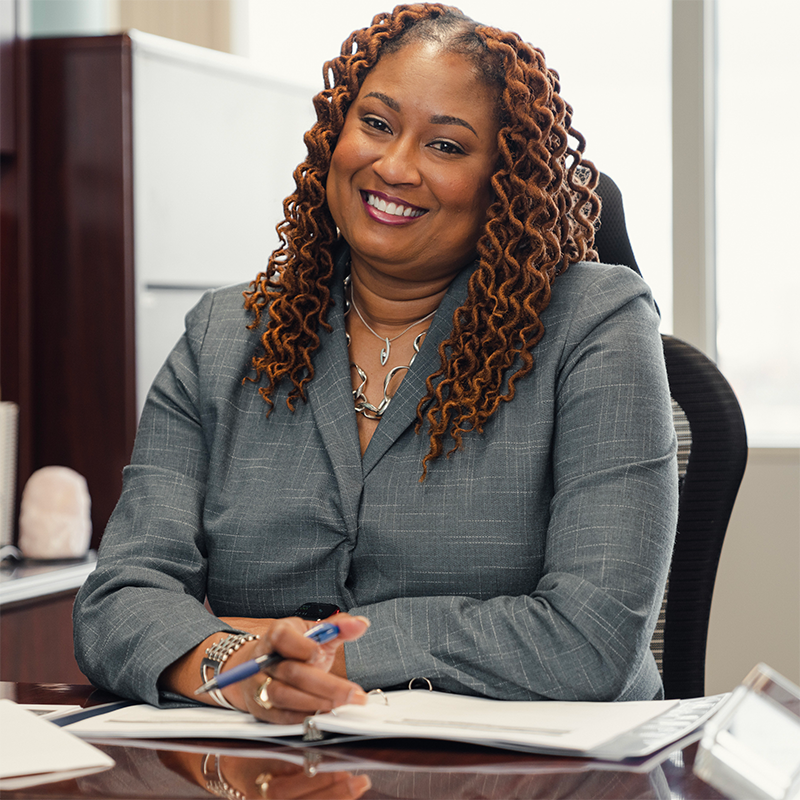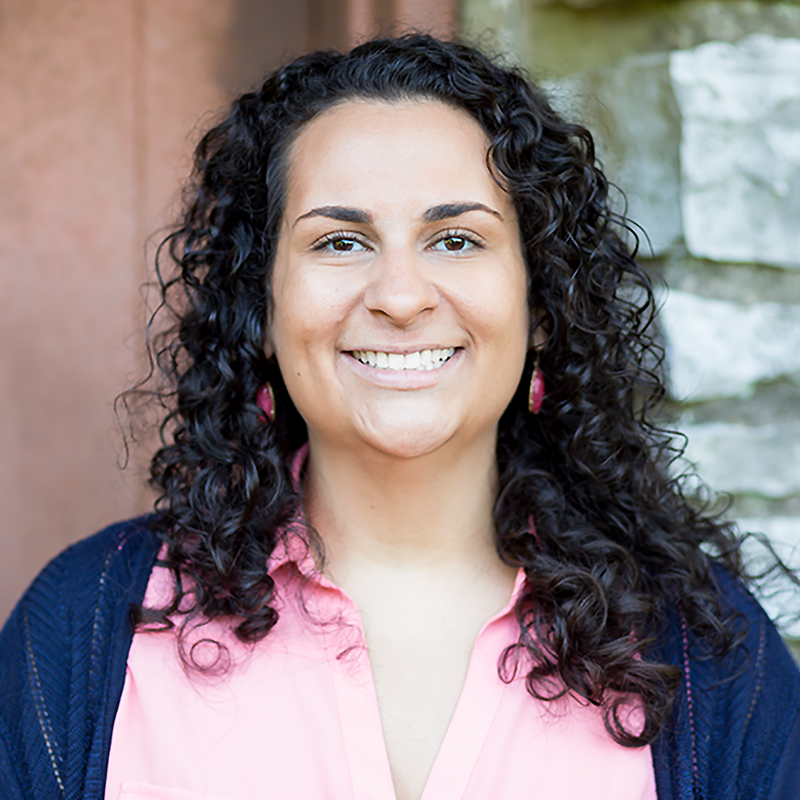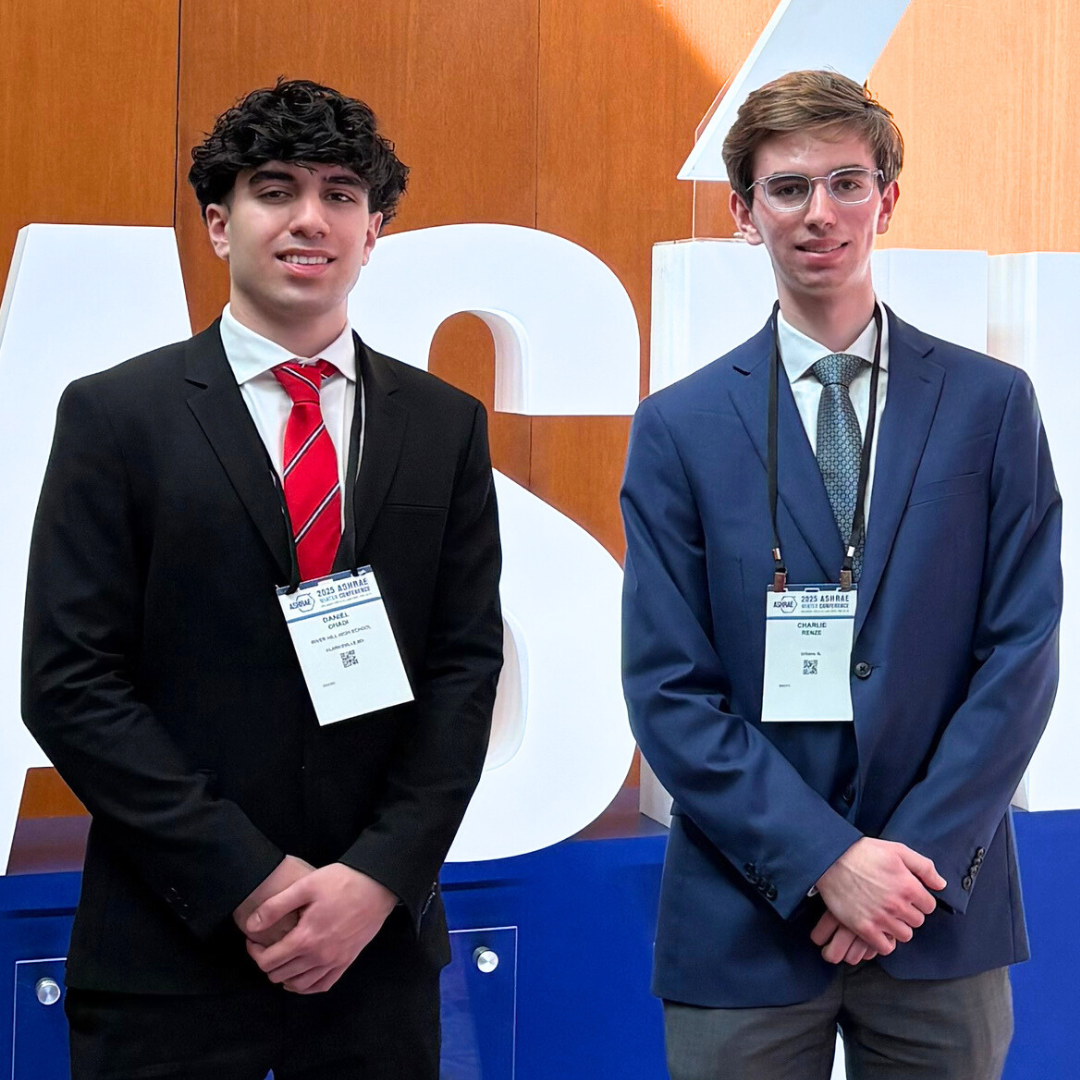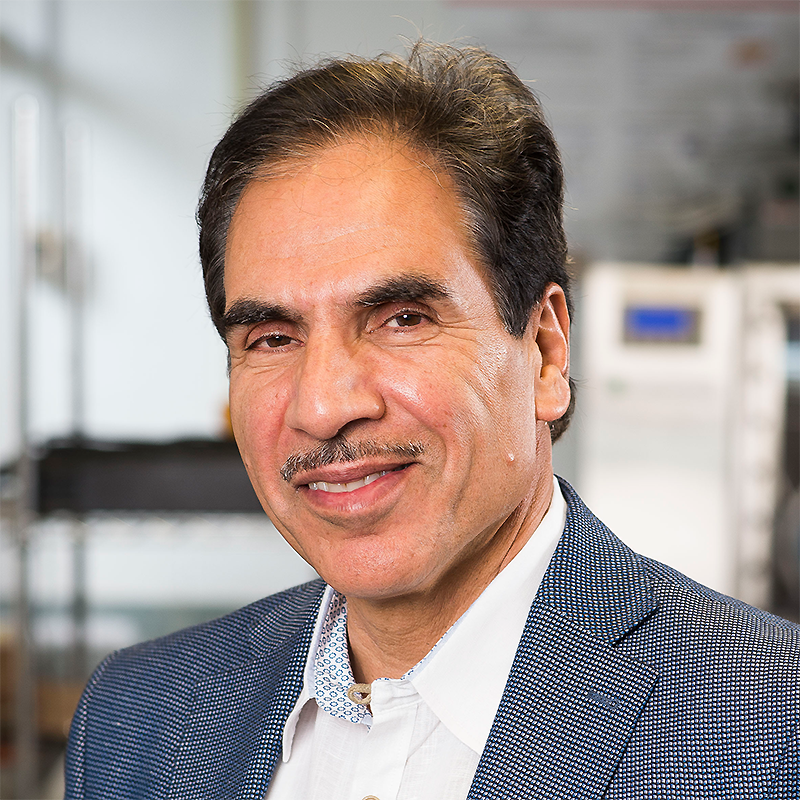News Story
Boyce Highlights Promise of Soft Composites
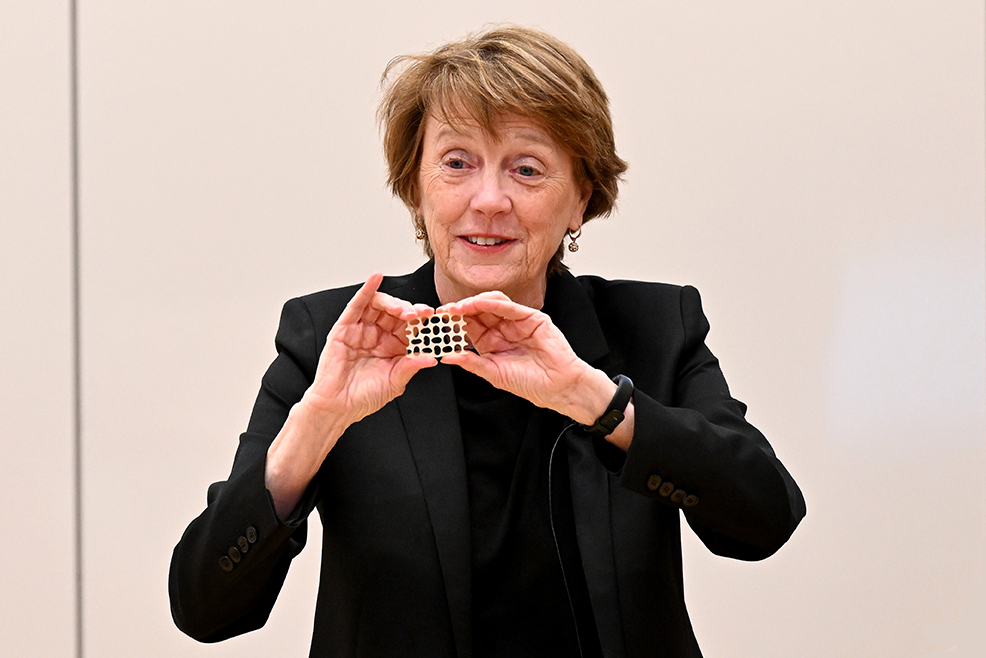
Mary C. Boyce, professor of mechanical engineering, provost emerita, and dean emerita at Columbia, delivered the 2024 George Dieter Distinguished Lecture. [Photo: Greg Fiume]
Soft materials respond in intriguing ways to external stimuli. Cut a lattice of circular holes into a polymer, for instance, and then apply pressure: the circles will transform into an alternating pattern of horizontal and vertical ellipses. Mechanical engineers have shown great interest in controlling these properties for applications ranging from energy storage to robotics.
Renowned Columbia University Professor Mary C. Boyce, hosted by the Department of Mechanical Engineering at the University of Maryland (UMD) on April 29 as the 2024 George Dieter Distinguished Lecturer, showcased some of the behaviors exhibited by soft materials, both through geometric methods and by combining different materials to form composites.
Soft materials can be patterned in a way that generates instabilities, which in turn allow engineers to manipulate the energy flowing through them. Research in this area often draws inspiration from biological organisms—for example, fish scales that stretch and contract as the fish swims through the water, thus providing flexible armor.
Interview: Dr. Mary C. Boyce
"What we're looking to do is exploit two things: the ability of a elastomeric material to undergo large and nonlinear deformation, and the ability to use different materials within that elastomer and/or different geometric configurations to further manipulate that nonlinearity to give new material behavior that you might not have thought of otherwise," Boyce said.

Columbia University professor Mary C. Boyce (right), the 2024 George Dieter Distinguished Lecturer, demonstrates properties of soft materials to UMD mechanical engineering graduate students Kathryn Pacheco (left) and Adira Colton. [Photo: Greg Fiume]
She is the third speaker to have delivered the George Dieter Distinguished Lecture since the inauguration of the series in 2022. The annual lecture alternates between the Department of Materials Science and Engineering and the Department of Mechanical Engineering at the A. James Clark School of Engineering, and presents thought leaders and innovators in the study of the mechanics of materials. Previous speakers have included Dr. William D. Nix, professor emeritus at Stanford, and John Hutchinson, professor emeritus at Harvard.
Said Harry Dankowicz, Professor and Chair of the Department of Mechanical Engineering: "Through this lecture series, the legacy of George Dieter continues to motivate new generations of mechanicians who relish the complexity of the subject and thrive on its astonishing relevance to biological organisms and systems as well as human-made devices and structures."
Boyce is Professor of Mechanical Engineering, Provost Emerita of Columbia University, and Dean Emerita of the Fu Foundation School of Engineering and Applied Science at Columbia. Prior to joining Columbia in July 2013, Boyce served on the faculty of the Massachusetts Institute of Technology for over 25 years, leading the mechanical engineering department as department head from 2008 to 2013.
Recognition for her scholarly contributions to the field include election as a Fellow of the American Academy of Mechanics and the American Society of Mechanical Engineers, and membership in the American Academy of Arts and Sciences and the National Academy of Engineering. Professor Boyce was awarded the 2015 Engineering Science Medal by the Society of Engineering Science and the 2020 Timoshenko Medal for Advances in Applied Mechanics by the American Society of Mechanical Engineers. She is the recipient of the 2024 Benjamin Franklin Medal in Mechanical Engineering from the Franklin Institute.
Leading up to her visit, Boyce was interviewed for an audio production, hosted by Dankowicz. "Mary’s intellectual and professional contributions are a great inspiration to the mechanics community," Dankowicz. "It is a gift to hear her speak with sincerity and enthusiasm about the importance of interdisciplinary collaboration and the rewards of mentorship."
Published June 4, 2024
